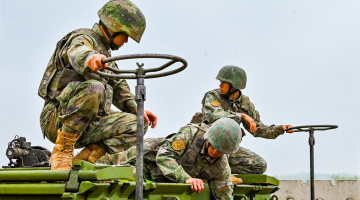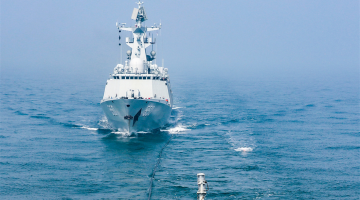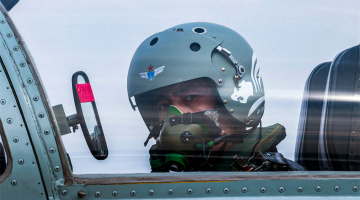UNITED NATIONS, July 12 (Xinhua) -- UN Secretary-General Antonio Guterres on Tuesday stressed the critical role of strategic communications in UN peacekeeping.
Strategic communications is critical across the spectrum of UN peacekeeping mandate and crucial to achieving the mission to protect civilians and prevent violence, to secure cease-fires and safeguard political settlements, to investigate and report on human rights abuses and violations, to advance the women, peace, and security agenda, and to ensure the safety and security of peacekeepers and the communities they serve, he said.
The landscape in which UN peacekeepers operate is more hazardous today than any time in recent memory. Geopolitical tensions at the global level reverberate locally. Conflicts are more complex and multi-layered. International discord often translates into heightened tensions on the ground, with warring parties disincentivized from making the necessary concessions for peace, he told a Security Council high-level debate on the key role of strategic communications for efficient peacekeeping.
Peacekeepers are facing terrorists, criminals, armed groups and their allies -- many with access to powerful modern weapons, and many with a vested interest in perpetuating the chaos in which they thrive. The weapons they wield are not just guns and explosives. Misinformation, disinformation, and hate speech are increasingly being used as weapons of war. The aim is clear: to dehumanize the so-called other, threaten vulnerable communities, as well as peacekeepers themselves, and even give open license to commit atrocities, he said.
"Strategic communications -- credible, accurate, and human-centered -- is one of our best and most cost-effective instruments to counter this threat. And more than just defusing harmful lies, engaging in tailored two-way communication itself builds trust as well as political and public support," said Guterres. "It strengthens the understanding amongst the local population of our missions and mandates, and in return, strengthens our peacekeepers' understanding of the local population's concerns, grievances, expectations, and hopes. It can create a safe space for reconciliation and peacebuilding to work and provide women, young people, and civil society with greater access to peace processes."
But to be effective, it must be grounded in evidence, based on verified data, open to dialogue, rooted in storytelling, and delivered by credible messengers, he added.
The United Nations must play a more deliberate role as an information actor in conflict environments. It must be seen as a trusted source of information by providing engaging, factual content, facilitating inclusive dialogue, demanding the removal of harmful speech, calling leaders to account, and promoting the voices of peace and unity, he said.
Member states, particularly those present on the ground alongside UN peacekeepers, are crucial partners in this critical effort, he said.
"Access to information is a human right. In the places where our peacekeepers operate, it can be a matter of life and death, and the difference between peace and war," he said. "I look forward to working with this (Security) Council to strengthen our peacekeeping operations through improved strategic communications, and to pursue our shared goal of peace."









